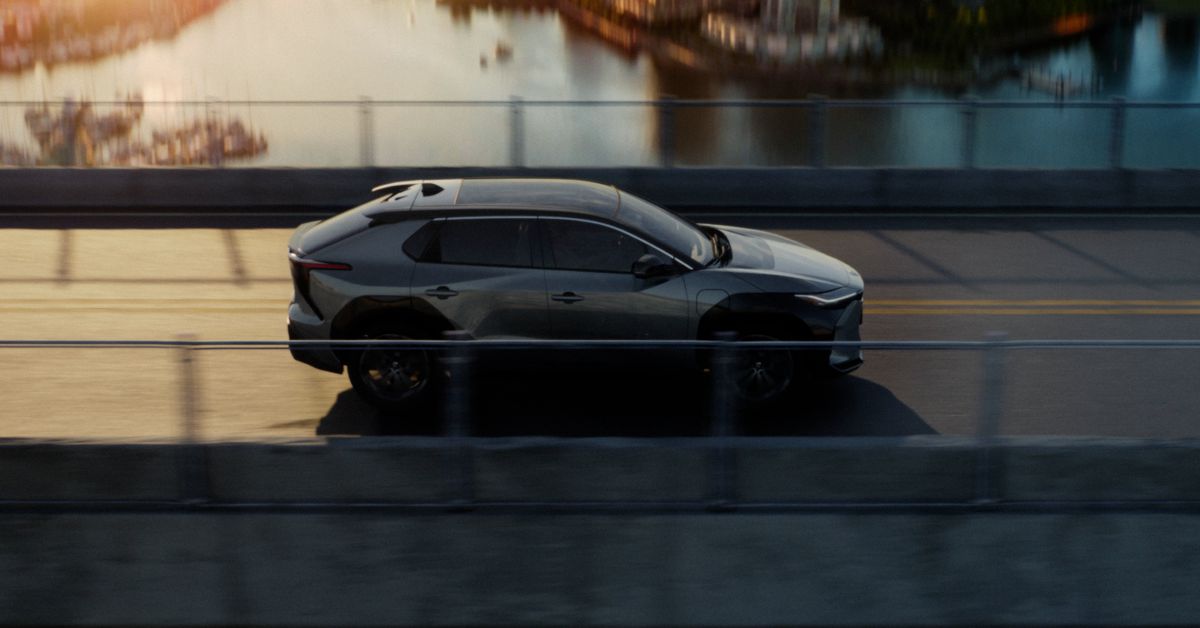Toyota, an early pioneer in electrification that has since lagged far behind its competitors, has finally announced a strategy for electric vehicles that will lead to 15 new battery electric vehicles to be released by 2025.
The company, which has helped pave the way for companies such as Tesla and others by proving that vehicles with alternative drivetrains can be very popular, also introduced a new concept EV at the Shanghai Motor Show, called the BZ4X. The electric SUV concept will be a starting point for other models with the BZ (which stands for ‘Beyond Zero’) in the future. Toyota has not released any details or specifications for the BZ4X, but it does say that the vehicle will be released in China and Japan later this year.
In total, Toyota said it would release 70 new models by 2025, including battery-electric, hydrogen-fuel cell and gas-electric hybrids, for a variety of “diverse choices” for its customers. The company, which is the largest carmaker in the world, will build these vehicles using the flexible platform it has developed in partnership with fellow Japanese carmaker Subaru. (Toyota currently owns a small stake in Subaru.)
The BZ4X will be built on this e-TNGA platform, enabling several features including a steering-for-wire system, four-wheel drive, better visibility and a regenerative braking system commonly found among electric vehicles. According to Toyota, the BZ4X will be released worldwide by 2022. There are rumors that Subaru is designing its own electric vehicles built on the e-TNGA platform.
Although it’s just a concept, the BZ4X looks like completion. The interior of the car has a unique instrument cluster, with the screen set back from the steering wheel in a way that, according to Toyota, will improve the driver’s visibility. The central infotainment screen hovers above the bar, as opposed to the built-in screen. And there are a number of physical buttons in the center console and on the steering wheel, proof that Toyota does not take full advantage of the digital user experience like companies like Tesla.
Up to this point, Toyota has resisted fully embracing electric vehicles as the future of the automotive industry, despite its status as an early supporter of battery transportation. In its announcement, Toyota cites its success in the hybrid market and notes that it has sold 17 million “electrified vehicles” since the 1997 release of the Prius.
Although Toyota was content to rest on its laurels with the Prius, the rest of the industry has patched it up several times already. Companies such as Nissan, General Motors and Volkswagen have been selling pure battery-powered vehicles for years, while also revealing their plans to phase out gas engines completely. Toyota’s failure to accept EVs is not a new concept; The New York Times so much noticed in 2009 in this article.
Meanwhile, Toyota’s top executives, including billionaire CEO Akio Toyoda, were on the record calling the trend towards electric vehicles partly “overheated” due to emissions related to power plants – which is a favorite talking point that the oil- and gas industry use.
Of course, we will know more about how serious Toyota is about accepting electric vehicles if the company has more say in the details of the power source and range, as well as the types of vehicles it will manufacture.
